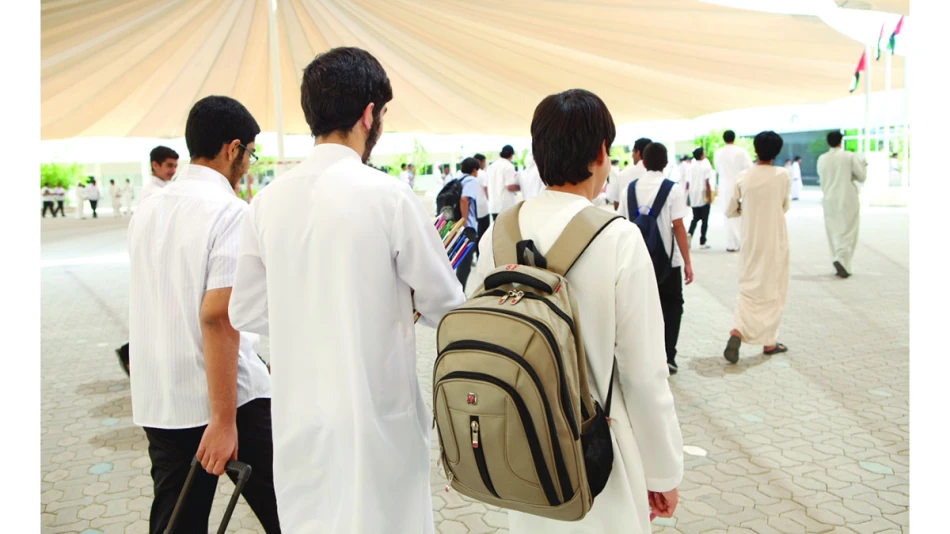
Ministry of Education Cancels Mid-Term Exams for All Grade Levels
UAE Launches Revolutionary AI Curriculum as Education System Undergoes Major Digital Transformation
The United Arab Emirates is positioning itself as a global pioneer in educational technology by introducing the first comprehensive artificial intelligence curriculum for students from kindergarten through grade 12. This groundbreaking initiative, coupled with significant assessment reforms and enhanced teacher training programs, signals the UAE's ambitious push to create a future-ready education system that could serve as a model for nations worldwide.
Scrapping Traditional Exams for Modern Assessment Methods
Education Minister Sarah Al Amiri announced sweeping changes to the country's evaluation system, eliminating centralized end-of-semester exams for the second term across all grade levels. Instead, schools will implement comprehensive school-based final assessments designed to maximize learning time and diversify student performance measurement tools.
The reform restructures the academic year weight distribution, with centralized testing now limited to the first and third semesters only. This approach mirrors progressive education systems in Finland and Singapore, where continuous assessment has proven more effective than high-stakes testing in developing critical thinking skills.
Project-Based Learning Expansion Shows Promise
Building on initial success involving 127,500 students across 350 schools, the ministry is expanding its project-based learning and assessment system to all intermediate-level students in both public and private schools following the national curriculum. This pedagogical shift reflects global trends toward competency-based education that emphasizes practical application over rote memorization.
AI Integration: A National First with Global Implications
The introduction of AI curriculum represents the UAE's most ambitious educational technology initiative to date. Approximately 1,000 specially trained teachers will deliver AI education across all grade levels, making this the first comprehensive national implementation of its kind globally.
The curriculum focuses on responsible AI usage and practical application rather than purely technical concepts, preparing students for a future where AI literacy will be as fundamental as traditional literacy. This strategic approach positions UAE graduates ahead of their international peers in the rapidly evolving digital economy.
Teacher Training Reflects Serious Commitment
The ministry has developed a dual-track training program: specialized computer teachers receive advanced AI pedagogy training, while educators across all subjects learn to integrate AI tools into their teaching methods. Over 23,000 education professionals participated in specialized training weeks, completing approximately 170 hours of professional development through 60 workshops.
This comprehensive approach addresses a critical challenge facing education systems worldwide – ensuring teachers can effectively leverage emerging technologies rather than being displaced by them.
Strengthening National Identity Through Language Focus
Despite the emphasis on technological advancement, the UAE is simultaneously reinforcing cultural foundations by increasing Arabic language and Islamic education instruction time. This balanced approach addresses concerns common in rapidly modernizing societies about maintaining cultural identity while embracing global trends.
The ministry will implement basic Arabic language skills assessment in first grade across 100 schools, creating baseline data to support targeted language development programs. This data-driven approach to cultural preservation demonstrates sophisticated policy planning that other multicultural nations could emulate.
Infrastructure Investment Supports Ambitious Goals
The UAE's commitment extends beyond curriculum changes to substantial infrastructure investment. Nine new schools will open this academic year, accommodating over 25,000 new students and more than 800 new educational staff members. The ministry has also distributed 47,000 laptops, printed over 10 million textbooks, and operates 5,500 school buses.
This level of resource allocation – particularly the laptop distribution – indicates serious intent to ensure equitable access to digital learning tools, addressing a key barrier that has hindered educational technology adoption in many developing nations.
Market and Policy Implications
The UAE's comprehensive education reform positions the country as a testing ground for educational technologies and methodologies that could influence global markets. EdTech companies and educational consultancies will likely study these initiatives closely, potentially creating export opportunities for successful UAE innovations.
For investors, the UAE's education sector represents a significant opportunity, particularly in AI education tools, assessment technologies, and teacher training platforms. The government's willingness to invest heavily in educational infrastructure suggests sustained demand for innovative solutions.
Regional Competition and Global Leadership
This initiative places the UAE ahead of regional competitors like Saudi Arabia and Qatar in educational innovation, potentially attracting international families and students seeking cutting-edge educational opportunities. The comprehensive nature of these reforms – spanning curriculum, assessment, infrastructure, and teacher development – demonstrates the kind of systemic thinking required for meaningful educational transformation.
As nations worldwide grapple with preparing students for an AI-dominated future, the UAE's bold experiment in comprehensive AI education integration will provide valuable data on what works, what doesn't, and how quickly educational systems can adapt to technological change. The success or failure of these initiatives will likely influence educational policy decisions far beyond the Middle East.
Most Viewed News

 Sara Khaled
Sara Khaled






